-
Mesa, AZ Dentist | One Tool for Better Gum Health
4 Jul 2018
Dentist Near Me
Loose teeth, bad breath, and painful, bloody gums – these are among the signs and symptoms of periodontal, or gum, disease. Unfortunately, periodontal disease can also begin without any obvious symptoms. If left undiagnosed or untreated, you could be at risk for irreparable damage to your teeth and gums. The good news is that periodontal disease is preventable. In fact, one of the most effective tools for preventing the disease only takes a minute of your time each day.
Floss to the Rescue
Dental floss is an effective and easy to use tool that can be among your best defenses for preventing periodontal disease. Periodontal disease is caused by a buildup of plaque and bacteria. Even if your daily oral hygiene routine already includes a thorough brushing that lasts for two minutes, at least twice each day, you should be flossing daily as well. Dental floss is highly effective at cleaning areas where your toothbrush cannot reach. Small gaps and tight spaces between teeth catch food debris and sugars and acids from drinks all day long. Flossing helps to clean out these tough to reach spaces.
Facts Behind Flossing
According to a survey referenced by the American Dental Association, only 40% of Americans floss each day. The same study showed a clear link between regular intra-oral care and better oral health. Unfortunately, many people also lie about how frequently they clean between their teeth. A study from the American Academy of Periodontology found that 27% of adults lie to their dentist about their flossing habits.
Tips for Flossing Correctly
It can be confusing to figure out the best way to use dental floss. Try cutting off about 18 inches of floss and wrapping most of it carefully around your middle finger. Use roughly one inch to clean between each pair of teeth. Using your thumb and index finger, carefully slide the floss between your teeth. Floss to your gumline, but be gentle. Avoid cutting your gums. Work your way through your 18 inches of floss by using a new, clean section between each pair of adjacent teeth.
It only takes about a minute to floss your teeth each day, but these minutes contribute to a lifetime of optimal oral health. Floss is among the most effective tools at your disposal to keep your gums clean and healthy. Get into the habit of flossing your teeth regularly – your gums will thank you.
For more information about gum health, or to schedule a visit to our office, please contact our team.
1102 South Greenfield Road
Mesa, AZ 85206
Phone: (480) 969-0077
-
Dentist Near Me | Look 10 Years Younger
14 Jun 2018
Dentist Greenfield
Your smile is one of the first things a person will notice when you meet. If you would like to improve your smile with a simple procedure, teeth whitening may be a great option for you, especially if you have stained, dull or discolored teeth. Our dental office is providing teeth whitening services to new and existing patients.
Regardless of how well you care for your teeth, over time, discoloration will occur. The main causes of stained teeth are genetics, antibiotics, tobacco and certain foods. As we age, our teeth darken as well. While preventing tooth discoloration is nearly impossible, our experienced team can help reverse the effects of discoloration by helping to create a whiter and brighter smile.
Whether it’s an in-office treatment or at-home treatment, the principles of teeth whitening are the same. A special whitening agent is applied to the teeth in order to bleach the stains and brighten your smile. Our expert dentist will discuss your whitening needs and goals with you to determine which option is best for you.
In-office teeth whitening is the quickest method to a brighter, whiter smile. With the supervision of an experienced dental professional, a stronger bleaching solution can be used than with at-home kits. Optimal results are achieved much faster with the professional whitening treatment, and in many ways the results are much better given the nature of the bleaching agents that are used. On average, patients find they appear up to ten years younger just by restoring the bright, white smile of their youth.
During a professional teeth whitening treatment, we will first clean the teeth. They will apply a whitening agent to your teeth, carefully avoiding your gums and soft tissue. Once applied, a laser light will be directed at the teeth to expedite the process. For maximum results, the process may be repeated more than once.
If a visit to our office for professional whitening isn’t an option for you, at-home treatment may provide the whitening you need. While you will find a vast variety of at-home teeth whitening products on the market, including whitening toothpastes, over-the-counter gels, rinses, strips, trays and more, we can fit you with custom-made whitening trays that will more accurately fit to your teeth for a more even whitening result.
At-home teeth whitening results are less dramatic compared to those achieved at the dentist. While at-home teeth whitening is easy to use, it is not recommended if your teeth or gums are sensitive.
Dentistry at Greenfield
1102 South Greenfield Rd., Mesa, AZ 85206
(480) 969-0077 -
Dentist Mesa | 4 Ways to Make Oral Hygiene Fun
7 Jun 2018
Dentist Near Me
It can be difficult to get your child to practice proper oral care unsupervised. However, the long-term benefits of an early start to optimal oral hygiene are worth the effort. Below are some tips to help you make oral health a fun part of your child’s daily routine.
1. Brush with a Buddy.
Your child will be much more excited to floss and brush their teeth if it’s a family activity. Brush your teeth with your child, or if they have siblings, have the kids brush together. This will help make the time more fun and help your child to subconsciously accept oral hygiene as a normal part of a daily routine.2. Choose the Right Supplies.
Let you child pick out their own toothbrush. This will help them feel like they have a say in their oral care routine.3. Reward Good Behavior.
A little incentive can go a long way. When trying to get your child to floss and brush on their own, it might be helpful to implement a simple reward system. For example, your child could track their own brushing on a calendar and trade it in for a small gift or prize after a month of twice daily brushing.4. Educate to Empower.
It’s important that your child understands why practicing good oral hygiene is so important. Use this as an opportunity to teach them about the dangers associated with poor oral health.There are a lot of strategies you can use to make brushing a fun part of your child’s day, rather than a chore. You know your child better than anyone, so don’t be afraid to come up with some additional techniques that will work better for them!
Dentistry at Greenfield
1102 South Greenfield Rd., Mesa, AZ 85206
(480) 969-0077 -
Do I Really Need an Exam? | Dentist 85206
24 May 2018
Dentist Near Me
It’s highly likely that after visiting our practice, you understand the value of a thorough, professional dental cleaning. It’s also likely that you may not fully understand the importance of a complete exam and radiographs.
There are many reasons the exam is an important part of your oral health routine.
Exams allow the doctor to evaluate for signs of health conditions. Many health conditions present early signs and symptoms in the mouth, including: Crohn’s, Addison’s, Leukemia, Diabetes, Lupus, Anemia and many others. Skipping an exam could prevent your dentist from screening for oral manifestations of systemic disease.
According to research, one American dies every hour from oral cancer. A thorough complete examination can catch early signs of oral cancer, allowing for early treatment, which can be key to survival.
Periodontal disease is the leading cause of tooth loss and is related to serious systemic health conditions such as heart disease and stroke, among many others. Evaluating your soft tissue and bone health allows our team to identify early signs of periodontal disease, which can allow for prevention and early treatment. This is vital for your oral and overall health.
Radiographs provide valuable insight. Decay and other oral health issues are often hidden from the human eye. Radiographs (X-Rays) allow us to find what we could not otherwise see, allowing for early treatment and less invasive solutions.
Dentistry at Greenfield
1102 South Greenfield Rd., Mesa, AZ 85206
(480) 969-0077 -
Dentist 85206 | 4 Ways to Achieve Optimal Oral Health
15 May 2018
Keeping up optimal oral health takes more than brushing and flossing. Maintaining oral hygiene demands a bit of work, but it is worth it in the long run. Here are four ways you can improve your dental health right now.
- Replace your toothbrush more often. When was the last time you replaced your toothbrush? A month ago? Six months? Most people don’t swap out a new brush often enough, which can lead to reduced brush effectiveness. Change your brush at least every three months. Be sure to switch after having an infection like the cold or flu to prevent reinfection.
- Lay off the fizzy drinks. The acids present in soda wear away enamel, weakening your teeth and leaving them vulnerable to decay. In fact, people who drink three or more glasses of soda per day experience about 62% more tooth decay than those who choose another beverage like water.
- Opt for chocolate. Everyone loves a sweet treat now and then, but did you know that certain candies are better for your teeth than others? The American Dental Association reports dark chocolate is the healthiest option, as it is soft and washes off your teeth easier than other candies. Hard, sticky, and sour goodies should be avoided, because they can stick to your teeth and even cause chips or cracks if you bite down too hard.
- Visit your dentist. Trips to our office should occur at least twice a year—not just when you have a toothache. We offer preventative care, vital education, and important cleanings, which are all part of maintaining excellent oral health.
We are pleased to offer a variety of solutions to keep your smile healthy. We are also able to customize a health plan tailored to your specific needs. Book your appointment today.
Dentistry at Greenfield
1102 South Greenfield Rd., Mesa, AZ 85206
(480) 969-0077 -
An Important Reminder About Your Next Dental Appointment
13 Apr 2018
At times, life can seem to move quickly. Between work, school, sports, and social events, it can seem there is little time left for you and your health. It’s imperative for a healthy mouth and body to always have your next dental appointment scheduled and to prioritize this care. Our team will work with you to find the most convenient day and time for you. If you need to reschedule, we will do our best to accommodate you. Advanced notice of a change is greatly appreciated, whenever possible. Missed appointments without notice are harmful to our practice, as we’ve reserved your appointment time exclusively for you.
Missed dental appointments can lead to worsened oral and overall health. Whether receiving preventive or restorative care, if left without professional treatment, plaque and decay will progress and the state of your oral health will likely decline. Some of our patients are predisposed to more frequent oral health issues. Many times, these guests prefer more frequent office visits. Please know this is an option for you as well. Investing in one extra cleaning each year can often prevent more costly concerns.
We know it can be tempting to skip your dental appointment. Perhaps you’d rather be relaxing at home or you’ve had a last-minute obligation arise. Please make every effort to prioritize your healthy smile, as it significantly contributes to your overall health.
Please know we’re here for you. If you have any questions about our care or practice philosophy, don’t hesitate to contact us.
-
Dentist Mesa, AZ | Dry Mouth – Not Just a Nuisance
5 Apr 2018
Dentist 85206
Normal flow of saliva provides lubrication for swallowing and begins the process of digestion while you chew. Saliva also protects your teeth by neutralizing and washing away acids, sugars, and other particles left behind after eating. From time to time, we all experience some amount of dry mouth. Hot weather, exercise, and dehydration can all cause a temporary decrease in saliva production. However, if you have chronic dry mouth, or xerostomia, you could be at risk of serious oral health complications.
Some of the oral health issues commonly associated with dry mouth include:
• Much higher rates of tooth decay
• Oral yeast infection
• Bad breath (halitosis)
• Periodontal (gum) disease
• Constant sore throat
• Soft tissue infections
• Difficulty swallowing
• Denture discomfortThe most common cause of chronic dry mouth is medication. More than 400 over-the-counter and prescription medications include dry mouth as a frequent side effect. Dry mouth is also associated with stress, autoimmune and other systemic diseases, hormonal changes, radiation or chemotherapy treatment for cancers, and salivary gland disease.
You may find relief from dry mouth through a variety of methods. Some easy options to help alleviate your dry mouth include:
• Increased water intake
• Sugar-free candies or gum
• Artificial saliva, as recommended by doctor or dentist
• Alcohol-free mouthwash
• Limiting alcohol, caffeine, and carbonated soft drinks
• Use a humidifier to add moisture to the air in your home
• Change in medication, only as directed by doctorBrush and floss regularly to help prevent tooth decay, gum disease, and other complications.
If you are experiencing dry mouth, make an appointment and be sure to tell our team. We will review your medications and perform a thorough dental exam to check for any potential underlying oral health issues.
For more information about dry mouth, contact our office.
Dentistry at Greenfield
1102 South Greenfield Rd.
Mesa, AZ 85206
(480) 969-0077 -
Dentist Near Me | Filling in the Gaps: Your Options for Missing Teeth
28 Mar 2018
Are you embarrassed to show your smile because of missing teeth? For many people, missing teeth can create a feeling of diminished self-confidence. Modern dentistry can not only replace the gaps in your smile, our team can also create long-term replacements that look and feel just like your natural teeth. You have options. Here are a few of the most common tooth replacement solutions.
Dentures
Dentures are a solution for those who have lost many or all their teeth. They create a realistic, aesthetically pleasing smile. They are ideal for patients that are missing multiple teeth on either the top or bottom. Our team will start by taking an impression of your mouth. We will then send the impression to a lab for a customized set of dentures to be created. Once your dentures are ready, we will ensure a proper fit and make any necessary adjustments. Dentures should be cleaned regularly with a non-abrasive cleanser. Our team will provide you with all the information you need to take care of your dentures.
Bridges
You may have heard of dental bridges referred to as partial dentures. Dental bridges are a replacement solution for one or more missing teeth. They help prevent your existing teeth from shifting into the empty gaps of your missing teeth. Bridges utilize your surrounding teeth as an anchor for your replacements. Our team can match the bridge to look like your natural teeth; no one will even notice the difference.
Dental Implants
Dental implants are a long-lasting tooth replacement option. Unlike dentures, which may require replacement, dental implants can last a lifetime with proper care. Our team will ensure your gum tissue is healthy enough with adequate bone support to anchor the implant. For some patients, additional preparations may be necessary such as a bone graft to guarantee your implant has a strong, stable foundation.
The gaps in your smile can be filled. Our team can help you decide on a tooth replacement solution based on your individual needs. It is important to fill the gaps of missing teeth to prevent deterioration to your gums and the shifting of teeth into these empty spaces. Additionally, tooth replacement solutions such as dentures, bridges, or implants can help improve your speech and comfort.
If you are missing teeth, we invite you to schedule a consultation with our team.
-
Dentist 85206 | 4 Tips for Healthy, White Teeth
9 Mar 2018
Dentist in Mesa, AZ
Your smile is one of the first things that people notice about you. One way to make a lasting impression is to have a healthy-looking smile. Over the years, teeth whitening has become immensely popular. People turn to in-office whitening, over-the-counter whitening, and home-made whitening techniques. Did you know that there are ways to keep your smile white with just small changes to your daily routine? Read the tips below to keep your smile looking pearly white.
- Brush and Floss
To keep your mouth clean, healthy, and stain-free, brush and floss your teeth at least twice a day. Brush your teeth after drinking coffee, tea, soda, or red wine to help fight discoloration.
- Diet
Some of the food and drinks you are consuming may cause your teeth to look dull or stained. Wine, coffee, tea, soft drinks, and berries all contain substances that stain teeth. Chromogens are molecules found in all of these items that stick to the enamel of your teeth causing a dull look.
- Quit Smoking
Smoking is not only bad for your heart and lungs, it is also bad for your mouth and teeth. Smoking causes tooth discoloration, increased plaque buildup, gum disease and more.
- Visit Your Dentist
Dental cleanings and exams are an important part in keeping your teeth healthy and bright. You may need frequently follow up visits based on your oral health care. Don’t forget to schedule an appointment twice a year.
Even if you do use in-office whitening or over-the-counter products, your teeth need extra care to keep up with the initial results. By flossing, lifestyle changes, and regular dental visits your teeth will be looking bright.
Call our office to schedule your dental cleaning today.
1102 South Greenfield Rd.
Mesa, AZ 85206
(480) 969-0077 -
Mesa Dentist | The Dangers of Grinding
21 Feb 2018
Dentist Near Me
Teeth grinding, known as bruxism, is a habit many get into without even realizing it. Grinding your teeth can be damaging for several reasons. If you or your child have been struggling with teeth grinding, make an appointment to see us. We will assess the damage to the teeth, as well as assist you in addressing solutions. Here’s what you need to know about teeth grinding.
Why Do We Grind Our Teeth?
Teeth grinding does not have a single cause. Instead, it can occur for several different reasons. Stress and anxiety, an improper bite, and sleep disorders are all potential causes. If your teeth are not aligned properly, they can rub against each other while you bite or chew. Many people grind their teeth without even realizing what they are doing.
The Journal of the American Dental Association found that smoking and alcohol result in an increase in teeth grinding. In fact, smokers and people who drink alcohol were found to be twice as likely to experience bruxism as those who do not have these behaviors.
What Grinding Does Your Teeth
Grinding wears down your teeth causing damage, increased sensitivity, and even loosening teeth. Teeth are like bones. They can crack or fracture, and grinding has been known to cause both issues. Your teeth can also be flattened from constantly rubbing against one another. Grinding not only damages your teeth, but it leaves you more susceptible to other complications in the future, as well. Beyond your teeth, grinding can lead to jaw pain and headaches. If you wake up with a sore, tired jaw on frequent occasions, this could be a sign that you grind or clench your teeth throughout the night.
What We Can Do
If grinding is an issue for you, make an appointment to see us. First, we will assess the extent of the damage that may have already occurred due to grinding. We will then work with you to identify a solution that will keep your teeth strong and healthy. In some cases, we may recommend wearing a mouth guard at night to prevent your teeth from pressing against one another. Though it can be challenging, if your grinding is caused by stress, the top priority will be to find ways to reduce stress and anxiety. Stress is a more common cause for adults than children. The primary cause of grinding in children is improper alignment.
If grinding your teeth has become an issue, please do not wait until it leads to sensitivity and pain. Schedule an appointment to see us for an evaluation and treatment plan. Our professional dental team will work with you to address the cause of your grinding, and determine a solution that will protect your teeth from any further damage.
For more information on keeping your teeth strong and healthy, please contact our office. We look forward to assisting you!
-
Dentist In Mesa | Oral Health and Cancer
7 Feb 2018
Dentist in Mesa, AZ
There are over 12 million new cases of cancer diagnosed each year. There are a large variety of different kinds of cancer, some of which are more preventable than others. It might seem obvious that brushing and flossing each day as well as avoiding tobacco can help protect you from oral cancer. However, there are types of oral cancer and other cancers that can be prevented through optimal oral care as well.
Dental Care and Oral Cancer
While it’s long been known that tobacco and heavy alcohol use are the main causes of oral, head, and neck cancer, poor oral health has recently been added to the list. A 2007 study published in American Journal of Epidemiology found that poor mouth health and missing teeth were strongly linked to the development of oral cancer. Likewise, patients with healthy smiles were found to be far less likely to develop oral cancer. If you have been diagnosed with oral cancer, know that common oral health problems such as gum disease and tooth decay could be making the condition worse. Visiting our dental office regularly for professional cleanings, examinations, and oral cancer screenings to help catch signs of oral cancer early and make treatment easier and more effective.
Oral Health and Other Cancers
Poor oral health has been shown to be tied to other types of cancers outside of the mouth. For example, a recent study conducted by NYU Langone Health’s Perlmutter Cancer Center found that certain types of bacteria in patients with gum disease was tied to a higher risk of developing esophageal cancer. While esophageal cancer only accounts for 1% of new cancer cases diagnosed annually, over 90% of patients will die of the disease. Untreated gum disease opens up the tissues around the teeth to bacterial infection, allowing these harmful bacteria to enter the bloodstream and infect other parts of the patient’s body. Maintaining optimal oral health can help protect you from this threat.
Your oral health effects much more than just your mouth. If you’re not taking care of your teeth, tongue, and gums, you could significantly increase your risk of developing cancer without even realizing it. If you’d like to learn more about the connection between oral health and cancer, contact our dental team to schedule an examination and cleaning today!
-
Dentist in Mesa, AZ | Blood Thinners and Oral Surgery
18 Jan 2018
Dentist Mesa
Blood thinning medications are helpful in regulating your body to prevent heart attacks, strokes, and other serious issues. However, if you are scheduled for oral surgery, it is vital that our oral surgeon is aware of all medications you are using.
How Blood Thinners Work
There are two types of blood thinners. The first type works to prevent blood clotting. Medications ranging from aspirin to Plavix fit into this category. The other type of blood thinners work to prevent blood from coagulating; Coumadin or warfarin accomplish this.
What Our Oral Surgeon Should Know
When you have your oral surgery consultation appointment, be sure to share with us any medications you are taking. We need to have your complete medical history to ensure your safety and proper treatment. Our dentist might also ask you the purpose of each medication you are taking to better understand any side-effects or other medical issues that could affect your oral surgery.
Steps to Take Before Surgery
Never stop any medication without consulting your doctor. Depending on your medical history, your doctor might suggest specific blood tests before having oral surgery. Communication is key, both between you and your primary physician, and between you and our office. If your treatment requires additional medication to be taken, ask about potential drug interactions.
Steps to Take to Minimize Oral Bleeding
Bleeding resulting from oral surgery can occur, but each patient will have different results. The most effective way to minimize oral bleeding is to firmly apply pressure to the area for up to 30 minutes. Gauze is recommended for applying gentle pressure to stop bleeding. Depending on the oral surgery procedure, we may ask you to refrain from drinking hot liquids and rinsing your mouth for the first day. We suggest avoiding rough or sharp foods that might cut your mouth.
Prior to having any oral surgery, it is important that our experienced surgical team has a thorough knowledge of your medical history. This enables us to find the best possible solutions for your needs, while ensuring your safety.
If you have any questions about medications and oral surgery, contact our office.
-
Dentist in Mesa | Men: Here’s What You Need to Know About Keeping Your Mouth Healthy
4 Jan 2018
Dentist in Mesa, AZ
Men, you’re not too tough for a visit to the dentist. Did you know according to the Academy of General Dentistry (AGD), by age 72 men lose an average of 5 teeth? That number jumps to 12 if you are also a smoker. Here’s what you need to know about keeping your mouth healthy. Follow these tips and you can beat the odds stacked against men and their oral health.
The Basics
Men are more likely than women to suffer from periodontal, or gum, disease. Men also have a higher risk of developing oral cancer and throat cancer, and men tend to lose more teeth than women. A poll conducted by the AGD found that 45% of men who responded felt there was no need for them to visit the dentist. This is a troubling statistic for a group more prone to oral health issues. A visit to our office can help us identify problems early.
Risk Factors
Certain medications can directly impact your teeth. Others can cause side effects such as dry mouth, which decreases saliva. Saliva is important in keeping your teeth’s enamel strong. Smoking or chewing tobacco, as well as smoking with an electronic cigarette are also linked to increasing your risk of developing oral cancer or other oral health issues. If you play sports, especially football or hockey, get fitted with a mouth guard to protect your teeth from extensive damage. You should avoid or limit energy drinks and sports drinks as these contain acids and sugars that can lead to decay.
Periodontal Disease
Men are at a higher risk for developing periodontal, or gum, disease. Periodontal disease is caused by a buildup of hardened plaque, usually the result of not brushing or not brushing thoroughly enough. This buildup, known as tartar, can inflame your gums. Studies have even linked periodontal disease to increasing your risk for strokes or heart attacks. If your gums are red, bloodied, or sore, you should make an appointment to see us. Our experienced, professional dental team will assess your gum health and work to find a treatment for you.
Take These Steps at Home
A visit to our office will provide you with a complete dental examination and cleaning, but you should also practice good oral hygiene each day at home. This starts by brushing your teeth twice each day, for two minutes each time. When you brush, use a fluoride based toothpaste. Make sure you are also using dental floss. Taking care of your teeth at home will make your next visit to see us easier.
Men, your teeth are not invincible so take good care of them. Practice good brushing and flossing habits at home. Reduce your risk of developing decay and oral disease by cutting back on sugary or acidic drinks, avoiding tobacco and smoking, and keeping our office up to date on any medications you are using. Get into the habit of coming to our office regularly, your smile depends on it.
For more tips on keeping your mouth healthy or to schedule your next dental examination, please contact our office.
-
Dentist in Mesa | Health Link: Oral Hygiene and Heart Disease
21 Dec 2017
Dentist Near Me
The human body is a network of interconnected systems and organs. Unfortunately, issues that impact one particular area of your body can also effect the health and function of other areas. Recently, studies have highlighted evidence for links between gum disease and heart disease.
While the exact nature of the connection is still being researched, heart disease is almost twice as likely to occur in people who have gum disease. Nearly half of all Americans have undiagnosed gum disease. In the United States, heart disease is the leading cause of death, making it pertinent that you maintain a healthy heart. The first key to doing so might lie in keeping your gums healthy.
While gum disease may be a contributing factor to heart disease, it is not the only cause. It is essential that you maintain regular visits to your primary care physician as well to measure your overall health. Other factors and lifestyle choices can impact your heart health.
Diet and exercise. Maintain an active lifestyle with activities you enjoy, such as taking walks, riding bikes, playing sports, or doing yoga. Avoid foods high in starches and sugars, including carbonated soft drinks, as they can also damage your teeth.
Don’t smoke. Whether you’re smoking or vaping, nicotine has a detrimental effect on your cardiovascular system and can damage teeth, gums, and lungs. Recent studies have connected vaping to a rapid loss in healthy cells that line the top layer of your mouth. These cells play an essential role in keeping your mouth healthy.
Brush your teeth. The most basic part of oral hygiene is also the most effective. Make sure you brush and floss at least twice a day.
By keeping a balanced, exercising regularly, and taking care of your teeth, you’re taking a holistic approach to your well-being and minimizing your risk of developing heart disease.
As with other diseases, preventing gum disease alone will not completely remove the risk of developing heart disease. However, you can take a proactive approach to keeping your body healthy, starting with your oral health.
To schedule a cleaning and examination, please contact our office.
-
Mesa, AZ Dentist | The Truth About Dental Anxiety
6 Dec 2017
Dentist 85206
Is anxiety or nervousness preventing you from visiting our team? Dental treatments should not be a cause of stress. If you worry about pain, embarrassment, or loss or control during a dental examination, we want you to know two very important things: You are not alone and We can help.
Dental Anxiety Is Common
Research has shown that most patients experience some degree of anxiety when visiting the dentist. Between 10 and 20% of the general population encounters such a high level of stress and nervousness that they ignore oral healthcare altogether. This can increase the risk of developing severe oral health complications, requiring additional care.
In many cases, dental anxiety has two main causes. First, patients may have had a negative experience in the past, leaving them apprehensive towards their next appointment. Second, is through influence. This is particularly true for children. Children learn through imitation and are influenced by their parents. If you dread going to the dentist, your child may pick up on the behavior and develop similar fears.
Our Team Can Help
The first action you can take is to let our team know about your feelings of nervousness and anxiety. We have a number of techniques to help you feel more comfortable and relaxed. Our compassionate team is always open to discussing your options with you.
We will consult you regarding what your visit will entail, and work together to find a comfortable pace at which you feel comfortable.
If nervousness, stress, fear, or anxiety have caused you to skip appointments or avoid dental care completely, please contact our team. Dentistry is constantly evolving by offering new technology and treatment methods with patient safety and comfort in mind. Talk to our team about your fears or concerns and allow us to work with you. Ignoring your oral health can have serious repercussions and lead to more necessary treatments.
Contact our team to schedule your visit today.
1102 South Greenfield Rd.
Mesa, AZ 85206
(480) 969-0077 -
Dentist Mesa | Be Wary of These Beverages
22 Nov 2017
Dentist 85206
It’s common knowledge that plenty of beverages are not good for your health. The excessive amounts of sugar, caffeine, or alcohol found in a lot of popular drinks have well-documented impacts on your body. However, you may not be aware of the immediate impacts that these beverages can have on your teeth. Below is a list of some common beverages and tips for enjoying them responsibly.
Soda, Juice, and Energy Drinks
The high sugar content in these drinks can have a negative impact on your physical health. Less obvious however is the effects that they can have on your teeth. As with any sugary food, prolonged exposure can lead to the damage and decay of your enamel, opening the door for cavities and other issues to occur.
Coffee
Many popular coffee drinks contain just as much sugar as sodas and juices. However, even people who drink their coffee black run the risk of damaging their smile. Excessive coffee consumption can stain your teeth, though the amount of discoloration experienced varies from person to person.
Wine, Beer, and Liquor
Though it seems obvious that red wine can stain your teeth, all wines pose a similar risk of damage. Likewise, darker beers can gradually stain your teeth depending on the frequency of consumption. While hard liquors generally don’t pose as much of a risk to your enamel on their own, the mixers they’re often served with can.
How to Protect Your Teeth
After consuming one of these beverages, your first impulse might be to brush your teeth as soon as possible. However, rushing to brush could actually be doing more harm than good. All of the aforementioned beverages contain high levels of acid. This acid has a softening effect on your enamel, and the pressure applied during brushing can potentially further this softening. Instead, it’s recommended that you follow sugary or acidic drinks with water and wait 30 minutes to brush. It is also beneficial to swish the water around as you drink it, as this will help gently rinse off all of your teeth and allow the enamel to harden before you brush.
Watching your diet can benefit your teeth as much as it benefits the rest of your body. However, moderate consumption of any of these beverages won’t cause an issue provided you maintain a proper oral care routine that includes regular brushing and flossing, as well as professional cleanings at least twice a year.
Contact our office today to schedule your next appointment.
1102 South Greenfield Rd.
Mesa, AZ 85206
(480) 969-0077
-
85206 Dentist | Sensitive Teeth Myths
8 Nov 2017
Dentist in Mesa, AZ
Do you suffer from regular sensitivity? Teeth sensitivity is often misunderstood, but our dental team can help you find relief. We’re here to separate the fact from fiction in sensitivity.
MYTH: People’s teeth are supposed to hurt when they bite into cold or hot foods.
Feelings of sensitivity when eating hot or cold foods should not be a typical experience. If you suffer from hypersensitivity, it can actually be a sign that something is wrong. There are many causes for hypersensitivity including cavities, older dental fillings, worn tooth enamel, gum disease, and exposed tooth roots. Dentin hypersensitivity is a common issue. A visit to our dental office can help you find relief.
MYTH: Desensitizing toothpastes are not effective in reducing teeth sensitivity.
Desensitizing toothpastes include compounds like potassium nitrate or strontium chloride. These ingredients work by preventing pain signals being transmitted between the surface of your tooth and the inside nerves. It may take several applications of the toothpaste until you will feel a noticeable difference. Prescription strength toothpastes are also an option for more severe and prolonged feelings of sensitivity. Ask our dentist to recommend a toothpaste for your needs.
MYTH: You shouldn’t drink coffee or eat ice cream if you have sensitive teeth.
You don’t have to be limited from eating or drinking your favorite foods. It is important to check with our dentist to determine the root cause of your discomfort. Based on your cause, we may recommend a prescribed toothpaste or another treatment. You should always maintain proper oral care to prevent sensitivity.
MYTH: Sensitivity never results in tooth loss.
Sensitivity may in fact be a precursor to tooth loss. Gum recession, which exposes the roots of your teeth, can cause general sensitivity among several teeth at the same time. Prolonged and untreated gum recession can lead to tooth loss. Tooth decay can also cause sensitivity. When left untreated, it may lead to an infection in the gums or jaw and risk spreading to other areas in the head or neck. Early diagnosis and treatment can make a difference in keeping your smile healthy.
MYTH: Sensitivity does not have a cure.
Depending on the cause, there are many ways to treat teeth sensitivity. Proper oral hygiene is the best way to prevent any sensitive tooth pain. If you experience sensitivity, schedule a comprehensive dental examination today.
We look forward to seeing you. Contact our team to schedule your next visit.
1102 South Greenfield Rd.
Mesa, AZ 85206
(480) 969-0077 -
Mesa, AZ Dentist | Ow! Your Guide to Canker Sores
18 Oct 2017
85206 Dentist
A canker sore can make eating, drinking, and talking difficult and even painful. Maintaining your oral health by brushing and flossing may also be difficult with a sore in your mouth, but keeping up with your daily oral hygiene routine is an important step in the healing process. We’ve put together a short guide to everything you need to know about canker sores.
What do they look like?
Canker sores are usually small, round reddish sores. You’ll find them on the soft tissues of your mouth, such as your tongue, the sides of your mouth, and at the base of your gums. Occasionally, a sore might have a yellow or white colored center.
What causes them?
Among the most common causes of canker sores are injuries. This can happen from biting your lip or cheek, an injury from sports, or even vigorous brushing. Certain people are sensitive to toothpastes containing sodium lauryl sulfate, leading to sores. Foods may also cause canker sores in certain people. Chocolate, eggs, nuts, and spicy foods have been known to cause the sores. At times, a diet that is deficient in vitamin B-12 or zinc is the culprit.
What can I do?
Your best defense is to keep your mouth healthy. This means keeping up with your twice-daily brushing and daily flossing. With a mouth sore, it may be tempting to avoid the area when brushing your teeth. This can lead to a buildup of plaque and bacteria. Aid the healing process by keeping your mouth clean and healthy. You may also try a mouthwash formulated for mouth sores. When in doubt, or if pain persists, talk to our team.
Brush thoroughly but gently around sores. Most canker sores heal within a week. If you find you are regularly getting sores, or they are taking longer than one week to heal, schedule a visit to our office. We will assess your oral health and provide you with our expert advice.
For more information about oral health or to schedule your next visit, please contact our office. We look forward to seeing you.
1102 South Greenfield Rd.
Mesa, AZ 85206
(480) 969-0077 -
Dentist in Mesa, AZ | How Pregnancy Affects Your Oral Health
3 Oct 2017
85206 Dentist
During pregnancy, it is essential that you don’t neglect your oral health. A fluctuation in hormones can cause drastic changes in your mouth. Oral health complications have been linked to increased risk in other significant overall health issues. Here are the most common oral health problems, how they can affect your pregnancy, and how to prevent them.
Oral Health Problems During Pregnancy
According to the Academy of General Dentistry, only 22 to 34 percent of women in the United States visit a dentist during pregnancy. Regular visits to our office while expecting can allow us to detect potential issues early. Gingivitis is the biggest concern during pregnancy. The buildup of plaque is more likely to cause an expecting mother to have red, swollen, and painful gums that bleed. If the gums become even more swollen and irritated, it can cause non-cancerous pregnancy tumors. If oral health problems are left untreated they can lead to serious diseases.
Ways to Prevent Gum Problems
The best way to decrease any risk of getting gingivitis is to brush your teeth at least twice a day. Make sure you brush the full tooth, all the way to the gums. Flossing your teeth regularly will also keep your gums healthy. Seeing your dentist more frequently for cleanings will reduce plaque and minimize any problems.
How Bad Oral Health Can Affect Your Baby
The Academy of General Dentistry suggests a link between gingivitis and having a preterm or low-birthweight baby. If an expecting mother has gingivitis, it can cause bacteria to enter in the bloodstream and travel to the uterus. The bacteria triggers chemicals that may induce early labor.
Maintaining good oral health is important in combating problems during pregnancy. Gingivitis is the most common concern that can be managed with the help of your dentist. Without proper treatment, gingivitis can lead to other health issues that not only affect you, but also your pregnancy. Keep yourself and your child safe by having a consultation with your dentist before or during your pregnancy. We also recommend that you bring your new baby to the dentist as soon as their first tooth grows in so they can get started on the path to a healthy life.
Contact our dental team today to schedule an appointment.
1102 South Greenfield Rd.
Mesa, AZ 85206
(480) 969-0077 -
Dentist 85206 | I Chipped a Tooth! What Can I Do?
20 Sep 2017
Dentist in Mesa
It usually starts pretty innocently. You’re biting into your favorite hard candy and suddenly you realize that there’s one little hard piece in your mouth you can’t seem to dissolve. You check it out and fear overcomes you when you see it’s a little chipped piece of a tooth.
Enamel may be one of the hardest substances in the body but like most things in life, it has its limit. Whether you are chewing on ice or grinding your teeth at night, there’s always a chance of putting your teeth at risk. If you have chipped your tooth, there’s no need to panic. Here are a few things we can do to restore your beautiful smile:
Tooth Bonding
Tooth bonding has many structural uses, and it can be very helpful for repairing chipped teeth. Tooth bonding is a simple procedure that doesn’t require any numbing. The bonding materials and porcelain used are natural in color and can be designed to perfectly match your teeth. Your smile will look good as new, and people will have a hard time noticing you ever chipped a tooth to begin with.
Dental Crown
A dental crown is a tooth-shaped cap that helps protect your teeth, while at the same time improving its appearance. An AACD (American Academy of Cosmetic Dentistry) dentist will likely use a tooth colored crown made out of porcelain or zirconia to look identical to your teeth. Crowns will also provide the durability and strength your teeth need to withstand daily use. You may only need a partial crown if our dentist sees that the chip doesn’t affect the entire tooth.
Porcelain Veneers
Porcelain laminate veneers are made up of several thin layers of ceramic used to repair chipped teeth. They will be bonded to the teeth to replace the original enamel of the tooth with a special adhesive. Dental veneers are a fantastic way to get your tooth to look whole and healthy again.
If you have a chipped tooth and would like more information on these methods, or to schedule a consultation, contact our office today.
1102 South Greenfield Rd.
Mesa, AZ 85206 -
Dentist Mesa | Chewing Gum for Your Oral Health
13 Sep 2017
Dentist 85206
Sugary, sticky, and sweet candies can damage your teeth by increasing your risk of decay. Though gum can be considered a type of candy, chewing sugarless gum approved by the ADA can actually help protect teeth and prevent tooth decay. Here’s what you need to know about gum and your teeth.
How it Works
Chewing gum helps increase the production of saliva. Chewing sugarless gum for twenty minutes following meals can help prevent tooth decay because the saliva helps wash away food and other debris from the surface of your teeth. Increased salivary flow can also neutralize acids that bacteria produce inside your mouth. Over time, acid can break down tooth enamel, leading to decay. Saliva contains calcium and phosphate, which aid in strengthening tooth enamel.
Look for the ADA Seal
The ADA Seal assures you that the gum is sugarless and has met the ADA’s criteria for safety and effectiveness. ADA-labeled products are tested to ensure they provide the benefits guaranteed by the seal. Companies must verify all relevant data with the ADA to become certified. If you are unable to brush for a short period of time, chewing gum with the ADA seal is a great option to help clean your teeth after a meal or snack.
Can I Stop Brushing if I Chew Gum?
No. Chewing gum for twenty minutes after a meal helps but is not a replacement for brushing and flossing. You should brush at least twice each day, for two full minutes. Chewing gum also does not eliminate your need for regular dental examinations. Our dentist recommends scheduling two visits each year, with additional visits necessary for high-risk patients with oral health conditions.
Chewing sugarless gum has noticeable benefits for your oral health, such as increasing the production of saliva. While this can help prevent the build up of decay-causing bacteria, chewing gum should not be used as a substitute for brushing or flossing. Our dentist recommends that if you are chewing gum, be sure to choose an ADA approved brand of sugarless gum.
To schedule your next visit, please contact our dental office.
1102 South Greenfield Rd.
Mesa, AZ 85206 -
Dentistry at Greenfield on Cosmetic Dentistry: Common Questions Answered
6 May 2017
Dentist in Mesa, AZ
To help patients and visitors gain a better understanding of cosmetic dentistry, we decided to share some of the most common questions we are asked.
What is cosmetic dentistry?
Cosmetic dentistry includes treatments that are designed to improve the appearance of your smile, in addition to improving your oral health and function.
What treatments will be offered to me?
Your cosmetic dental solution will be tailored to your unique smile, but may include cosmetic bonding, porcelain dental veneers, whitening, dental crowns, or other treatment options.
How do I know what treatment I should have?
Our expert doctor is trained and experienced in many cosmetic dental treatments. Before you make any decisions regarding your treatment plan, we will take time with you to discuss your goals and priorities, our recommendations, and your options.
How do I know if you are right the cosmetic dentist for me?
Our cosmetic dentist is highly skilled and experienced. We invite you to look at the before and after photos and patient reviews on our website to see the beautiful results our patients have achieved. If you have any questions or concerns, we are happy to take time to talk with you.
Does cosmetic dentistry have any benefit besides appearance?
Great cosmetic dentistry provides a wide range of benefits to you. Some of these include:
- Improving confidence
- Boosting self-esteem
- Creating a healthier appearance
- Making hygiene habits more effective
- Increasing function (in some cases)
- Providing a younger appearance
- Giving you a beautiful smile
For more information or to schedule your cosmetic dentistry consultation, contact our office.
-
Mesa Dentist | Silence Isn’t Always Golden
5 May 2017
Dentist in Mesa AZ
Periodontal (gum) disease is a progressive inflammation of the gum tissues. It is most frequently caused by bacterial infection. Left untreated, gum disease can have serious consequences for your oral and overall health. However, one of the biggest challenges for early detection and treatment of gum disease is its silence. Gum disease can often begin and progress with few or no symptoms until reaching an advanced stage.
Gum disease is caused when the bacteria found in plaque builds up between the teeth and the gums. As the bacteria grow, the gums can become inflamed and pull away from the teeth. When gum disease is not treated promptly, it can worsen, leading to increased gum recession, infection, and bone loss. In addition, periodontal disease is the leading cause of tooth loss in adults.
Gum disease also impacts other aspects of your overall health. Research has found links between gum disease and diabetes, heart disease, stroke, and other serious inflammatory illnesses. To help prevent gum disease, ensure you are practicing strong oral hygiene habits, including brushing, flossing, use of mouthwash, and regular dental examinations. Be aware of your risk factors for developing gum disease, such as age, tobacco use, genetics, stress, medications, grinding, obesity, or other inflammatory diseases, among others. Consider having an annual periodontal evaluation.
While symptoms may not appear until later stages of the disease, it is important to watch for the warning signs of gum disease. Some of these include:
- Red, swollen, or tender gums
- Mouth pain
- Bleeding gums caused by brushing, flossing, or eating hard foods
- Loose or separating teeth
- Pus between gums or teeth
- Mouth sores
- Chronic bad breath
- Gums receding or pulling away from teeth
- Changes in your bite or the fit of dentures
Gum disease can start silently, but may cause great damage if left untreated. Once gum disease has started, it can be effectively treated, but not fully cured. Protect your oral and overall health with preventive care and regular periodontal screenings. For more information about gum disease or to schedule your periodontal screening, contact our office.
Resource: https://www.perio.org
-
Mesa Implant Dentist | 7 Ways to Combat Bad Breath
4 May 2017
Dentist in Mesa
Halitosis, commonly known as bad breath, is commonly associated with certain foods. Garlic, onion, and cabbage can all cause a foul odor and taste for several hours after you’ve eaten them. This type of temporary halitosis is easily solved by avoiding the foods that cause it. However, in some cases bad breath is a chronic problem that simply changing your diet won’t solve.
Long-term bad breath is caused by the presence of bacteria in your mouth. These bacteria are most often found on the back of the tongue and thrive when your mouth is dry. There are a variety of ways you can help reduce or eliminate chronic bad breath. Some of these include:
Practice good oral hygiene.
Brush your teeth after you eat as often as possible and at least twice daily. Clean between your teeth using dental floss or another interdental (between teeth) cleaner at least once each day. Food particles between teeth will break down slowly and cause unpleasant odors and tastes.Brush your tongue.
Even if you brush and floss your teeth as recommended, the bacteria causing your bad breath may remain on your tongue. Use a tongue scraper or toothbrush to gently scrape away any particles of food or bacteria every time you brush. For best results, place the scraper or brush as far back as you can manage without gagging. This will generally become easier over time.Keep well-hydrated.
Dry mouths allow bacteria to thrive. By drinking plenty of water, you can help prevent the bacteria growth and reduce or stop bad breath.Avoid bad breath triggers.
Onions, garlic, cabbage, coffee, and tobacco products are all known to cause bad breath.Chew sugarless gum.
By chewing sugarless gum, you increase saliva production and keep your mouth moist. This helps slow or prevent bacteria growth, minimizing chances of bad breath.
Improve your diet.
Crunchy fruits and vegetables, yogurt, and foods rich in vitamins C and D all work to prevent the growth of bacteria, keep your mouth cleaner, and increase saliva flow.See your dentist.
Follow your regular schedule of dental hygiene appointments and exams. If you have tried the tips above without improvement, make an appointment for an exam to see if there may be an underlying condition that requires treatment. Treat any oral illnesses, such as decayed teeth, periodontal (gum) disease, or infection.For more information about the potential causes and treatments for halitosis, contact our office.
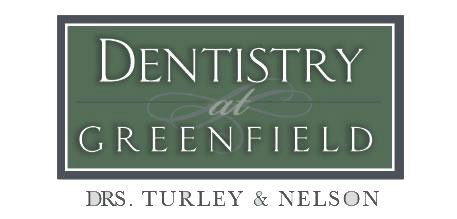
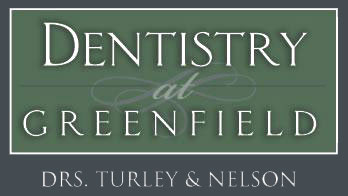
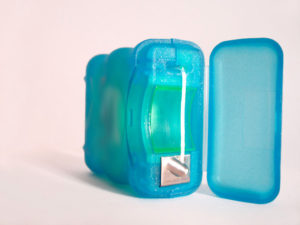 Loose teeth, bad breath, and painful, bloody gums – these are among the signs and symptoms of periodontal, or gum, disease. Unfortunately, periodontal disease can also begin without any obvious symptoms. If left undiagnosed or untreated, you could be at risk for irreparable damage to your teeth and gums. The good news is that periodontal disease is preventable. In fact, one of the most effective tools for preventing the disease only takes a minute of your time each day.
Loose teeth, bad breath, and painful, bloody gums – these are among the signs and symptoms of periodontal, or gum, disease. Unfortunately, periodontal disease can also begin without any obvious symptoms. If left undiagnosed or untreated, you could be at risk for irreparable damage to your teeth and gums. The good news is that periodontal disease is preventable. In fact, one of the most effective tools for preventing the disease only takes a minute of your time each day. Your smile is one of the first things a person will notice when you meet. If you would like to improve your smile with a simple procedure, teeth whitening may be a great option for you, especially if you have stained, dull or discolored teeth. Our dental office is providing teeth whitening services to new and existing patients.
Your smile is one of the first things a person will notice when you meet. If you would like to improve your smile with a simple procedure, teeth whitening may be a great option for you, especially if you have stained, dull or discolored teeth. Our dental office is providing teeth whitening services to new and existing patients. It can be difficult to get your child to practice proper oral care unsupervised. However, the long-term benefits of an early start to optimal oral hygiene are worth the effort. Below are some tips to help you make oral health a fun part of your child’s daily routine.
It can be difficult to get your child to practice proper oral care unsupervised. However, the long-term benefits of an early start to optimal oral hygiene are worth the effort. Below are some tips to help you make oral health a fun part of your child’s daily routine. It’s highly likely that after visiting our practice, you understand the value of a thorough, professional dental cleaning. It’s also likely that you may not fully understand the importance of a complete exam and radiographs.
It’s highly likely that after visiting our practice, you understand the value of a thorough, professional dental cleaning. It’s also likely that you may not fully understand the importance of a complete exam and radiographs. Keeping up optimal oral health takes more than brushing and flossing. Maintaining oral hygiene demands a bit of work, but it is worth it in the long run. Here are four ways you can improve your dental health right now.
Keeping up optimal oral health takes more than brushing and flossing. Maintaining oral hygiene demands a bit of work, but it is worth it in the long run. Here are four ways you can improve your dental health right now. At times, life can seem to move quickly. Between work, school, sports, and social events, it can seem there is little time left for you and your health. It’s imperative for a healthy mouth and body to always have your next dental appointment scheduled and to prioritize this care. Our team will work with you to find the most convenient day and time for you. If you need to reschedule, we will do our best to accommodate you. Advanced notice of a change is greatly appreciated, whenever possible. Missed appointments without notice are harmful to our practice, as we’ve reserved your appointment time exclusively for you.
At times, life can seem to move quickly. Between work, school, sports, and social events, it can seem there is little time left for you and your health. It’s imperative for a healthy mouth and body to always have your next dental appointment scheduled and to prioritize this care. Our team will work with you to find the most convenient day and time for you. If you need to reschedule, we will do our best to accommodate you. Advanced notice of a change is greatly appreciated, whenever possible. Missed appointments without notice are harmful to our practice, as we’ve reserved your appointment time exclusively for you. Normal flow of saliva provides lubrication for swallowing and begins the process of digestion while you chew. Saliva also protects your teeth by neutralizing and washing away acids, sugars, and other particles left behind after eating. From time to time, we all experience some amount of dry mouth. Hot weather, exercise, and dehydration can all cause a temporary decrease in saliva production. However, if you have chronic dry mouth, or xerostomia, you could be at risk of serious oral health complications.
Normal flow of saliva provides lubrication for swallowing and begins the process of digestion while you chew. Saliva also protects your teeth by neutralizing and washing away acids, sugars, and other particles left behind after eating. From time to time, we all experience some amount of dry mouth. Hot weather, exercise, and dehydration can all cause a temporary decrease in saliva production. However, if you have chronic dry mouth, or xerostomia, you could be at risk of serious oral health complications. Are you embarrassed to show your smile because of missing teeth? For many people, missing teeth can create a feeling of diminished self-confidence. Modern dentistry can not only replace the gaps in your smile, our team can also create long-term replacements that look and feel just like your natural teeth. You have options. Here are a few of the most common tooth replacement solutions.
Are you embarrassed to show your smile because of missing teeth? For many people, missing teeth can create a feeling of diminished self-confidence. Modern dentistry can not only replace the gaps in your smile, our team can also create long-term replacements that look and feel just like your natural teeth. You have options. Here are a few of the most common tooth replacement solutions. Your smile is one of the first things that people notice about you. One way to make a lasting impression is to have a healthy-looking smile. Over the years, teeth whitening has become immensely popular. People turn to in-office whitening, over-the-counter whitening, and home-made whitening techniques. Did you know that there are ways to keep your smile white with just small changes to your daily routine? Read the tips below to keep your smile looking pearly white.
Your smile is one of the first things that people notice about you. One way to make a lasting impression is to have a healthy-looking smile. Over the years, teeth whitening has become immensely popular. People turn to in-office whitening, over-the-counter whitening, and home-made whitening techniques. Did you know that there are ways to keep your smile white with just small changes to your daily routine? Read the tips below to keep your smile looking pearly white. Teeth grinding, known as bruxism, is a habit many get into without even realizing it. Grinding your teeth can be damaging for several reasons. If you or your child have been struggling with teeth grinding, make an appointment to see us. We will assess the damage to the teeth, as well as assist you in addressing solutions. Here’s what you need to know about teeth grinding.
Teeth grinding, known as bruxism, is a habit many get into without even realizing it. Grinding your teeth can be damaging for several reasons. If you or your child have been struggling with teeth grinding, make an appointment to see us. We will assess the damage to the teeth, as well as assist you in addressing solutions. Here’s what you need to know about teeth grinding.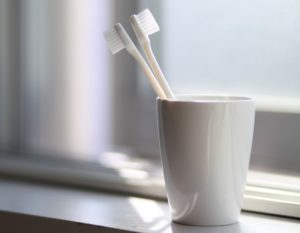
 Blood thinning medications are helpful in regulating your body to prevent heart attacks, strokes, and other serious issues. However, if you are scheduled for oral surgery, it is vital that our oral surgeon is aware of all medications you are using.
Blood thinning medications are helpful in regulating your body to prevent heart attacks, strokes, and other serious issues. However, if you are scheduled for oral surgery, it is vital that our oral surgeon is aware of all medications you are using. Men, you’re not too tough for a visit to the dentist. Did you know according to the Academy of General Dentistry (AGD), by age 72 men lose an average of 5 teeth? That number jumps to 12 if you are also a smoker. Here’s what you need to know about keeping your mouth healthy. Follow these tips and you can beat the odds stacked against men and their oral health.
Men, you’re not too tough for a visit to the dentist. Did you know according to the Academy of General Dentistry (AGD), by age 72 men lose an average of 5 teeth? That number jumps to 12 if you are also a smoker. Here’s what you need to know about keeping your mouth healthy. Follow these tips and you can beat the odds stacked against men and their oral health. Is anxiety or nervousness preventing you from visiting our team? Dental treatments should not be a cause of stress. If you worry about pain, embarrassment, or loss or control during a dental examination, we want you to know two very important things: You are not alone and We can help.
Is anxiety or nervousness preventing you from visiting our team? Dental treatments should not be a cause of stress. If you worry about pain, embarrassment, or loss or control during a dental examination, we want you to know two very important things: You are not alone and We can help. It’s common knowledge that plenty of beverages are not good for your health. The excessive amounts of sugar, caffeine, or alcohol found in a lot of popular drinks have well-documented impacts on your body. However, you may not be aware of the immediate impacts that these beverages can have on your teeth. Below is a list of some common beverages and tips for enjoying them responsibly.
It’s common knowledge that plenty of beverages are not good for your health. The excessive amounts of sugar, caffeine, or alcohol found in a lot of popular drinks have well-documented impacts on your body. However, you may not be aware of the immediate impacts that these beverages can have on your teeth. Below is a list of some common beverages and tips for enjoying them responsibly. Do you suffer from regular sensitivity? Teeth sensitivity is often misunderstood, but our dental team can help you find relief. We’re here to separate the fact from fiction in sensitivity.
Do you suffer from regular sensitivity? Teeth sensitivity is often misunderstood, but our dental team can help you find relief. We’re here to separate the fact from fiction in sensitivity. A canker sore can make eating, drinking, and talking difficult and even painful. Maintaining your oral health by brushing and flossing may also be difficult with a sore in your mouth, but keeping up with your daily oral hygiene routine is an important step in the healing process. We’ve put together a short guide to everything you need to know about canker sores.
A canker sore can make eating, drinking, and talking difficult and even painful. Maintaining your oral health by brushing and flossing may also be difficult with a sore in your mouth, but keeping up with your daily oral hygiene routine is an important step in the healing process. We’ve put together a short guide to everything you need to know about canker sores. During pregnancy, it is essential that you don’t neglect your oral health. A fluctuation in hormones can cause drastic changes in your mouth. Oral health complications have been linked to increased risk in other significant overall health issues. Here are the most common oral health problems, how they can affect your pregnancy, and how to prevent them.
During pregnancy, it is essential that you don’t neglect your oral health. A fluctuation in hormones can cause drastic changes in your mouth. Oral health complications have been linked to increased risk in other significant overall health issues. Here are the most common oral health problems, how they can affect your pregnancy, and how to prevent them.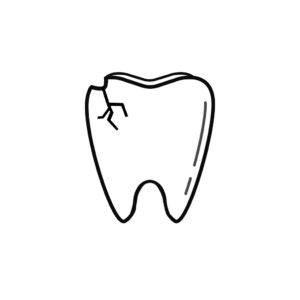 It usually starts pretty innocently. You’re biting into your favorite hard candy and suddenly you realize that there’s one little hard piece in your mouth you can’t seem to dissolve. You check it out and fear overcomes you when you see it’s a little chipped piece of a tooth.
It usually starts pretty innocently. You’re biting into your favorite hard candy and suddenly you realize that there’s one little hard piece in your mouth you can’t seem to dissolve. You check it out and fear overcomes you when you see it’s a little chipped piece of a tooth. Sugary, sticky, and sweet candies can damage your teeth by increasing your risk of decay. Though gum can be considered a type of candy, chewing sugarless gum approved by the ADA can actually help protect teeth and prevent tooth decay. Here’s what you need to know about gum and your teeth.
Sugary, sticky, and sweet candies can damage your teeth by increasing your risk of decay. Though gum can be considered a type of candy, chewing sugarless gum approved by the ADA can actually help protect teeth and prevent tooth decay. Here’s what you need to know about gum and your teeth.
 Periodontal (gum) disease is a progressive inflammation of the gum tissues. It is most frequently caused by bacterial infection. Left untreated, gum disease can have serious consequences for your oral and overall health. However, one of the biggest challenges for early detection and treatment of gum disease is its silence. Gum disease can often begin and progress with few or no symptoms until reaching an advanced stage.
Periodontal (gum) disease is a progressive inflammation of the gum tissues. It is most frequently caused by bacterial infection. Left untreated, gum disease can have serious consequences for your oral and overall health. However, one of the biggest challenges for early detection and treatment of gum disease is its silence. Gum disease can often begin and progress with few or no symptoms until reaching an advanced stage. Halitosis, commonly known as bad breath, is commonly associated with certain foods. Garlic, onion, and cabbage can all cause a foul odor and taste for several hours after you’ve eaten them. This type of temporary halitosis is easily solved by avoiding the foods that cause it. However, in some cases bad breath is a chronic problem that simply changing your diet won’t solve.
Halitosis, commonly known as bad breath, is commonly associated with certain foods. Garlic, onion, and cabbage can all cause a foul odor and taste for several hours after you’ve eaten them. This type of temporary halitosis is easily solved by avoiding the foods that cause it. However, in some cases bad breath is a chronic problem that simply changing your diet won’t solve.